Toyota-sponsored Pro Angler Mike Iaconelli Is Giving Back in a Big Way
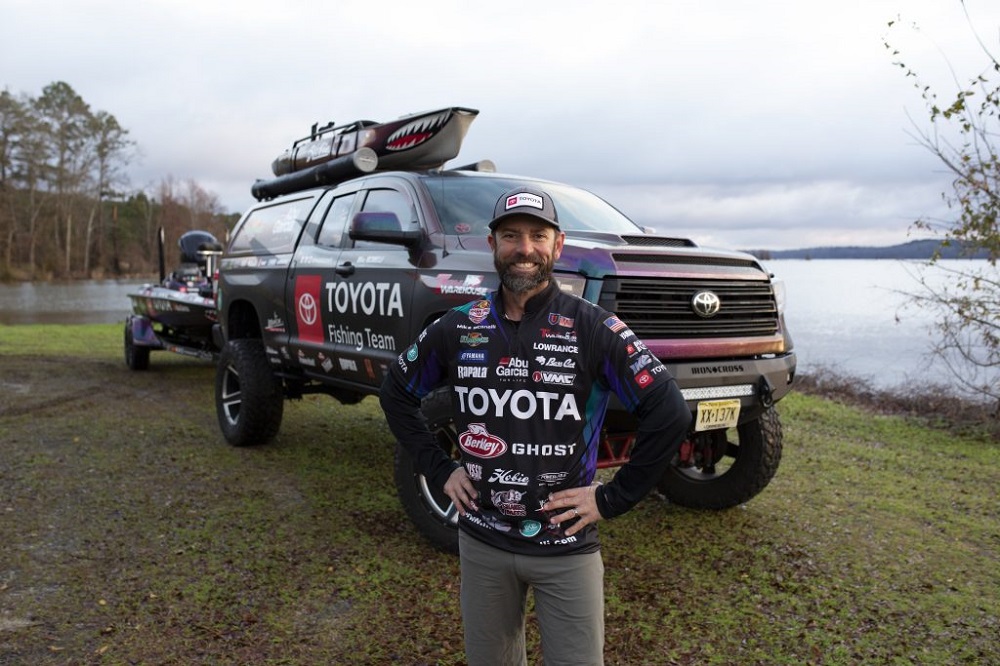
He’s the only angler ever to win the Bassmaster Classic, Bassmaster Angler of the Year, and B.A.S.S. Federation Nat’l Championship, and his trusty Toyota truck has been there through it all.
Toyota pro angler Mike “Ike” Iaconelli grew up in an area of the country where access to fish —for some children — is limited to the grocery store. That’s why childhood fishing excursions with his family inspired the championship athlete and his wife, Becky, to start the Ike Foundation, a nonprofit aimed at exposing more kids to the sport and getting them outdoors.
“I lived in South Philadelphia until I was 7, before moving to New Jersey,” says Iaconelli. “Not a fishing hotbed by any means, even though there is so much opportunity in that area. If it wasn’t for my family, I would never have gotten into it. I want to give other kids the same chance.”
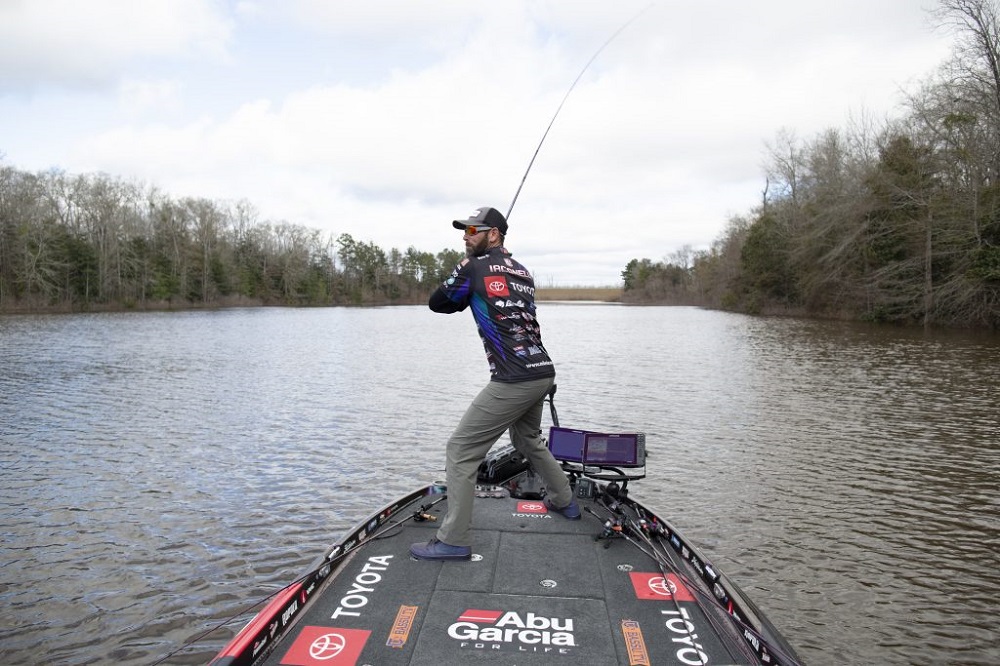 Iaconelli has been competing as a professional angler in B.A.S.S. and MLF events for more than 20 years. He’s an eight-time pro tournament champion and two-time MLF cup champion with 85 top 10 pro finishes, and he’s the only angler ever to win the Bassmaster Classic, Bassmaster Angler of the Year, and the B.A.S.S. Federation National Championship.
Iaconelli has been competing as a professional angler in B.A.S.S. and MLF events for more than 20 years. He’s an eight-time pro tournament champion and two-time MLF cup champion with 85 top 10 pro finishes, and he’s the only angler ever to win the Bassmaster Classic, Bassmaster Angler of the Year, and the B.A.S.S. Federation National Championship.
Now, the champion is focused on giving back to the fishing community and helping introduce others to the sport he loves. The core purpose of the Ike Foundation is to introduce kids to the sport in places where fishing is less common, primarily urban centers like New York City, Chicago and Dallas, a mission that Iaconelli says comes directly from his own childhood.
“When I close my eyes, I feel like I’m a kid every time I’m out there fishing,” he says. “And I want kids to have that same experience. The first cast, the first catch, time with your family outdoors. That’s become the core part of what I’m trying to do.”
An Early Start
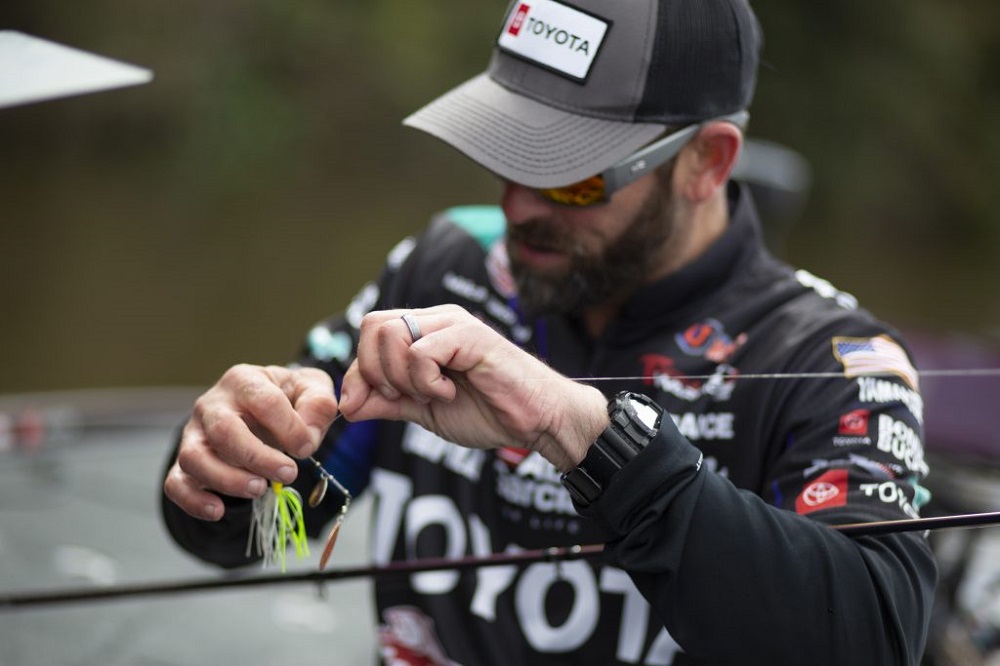
Iaconelli first started fishing with his family during summer vacations.
“I just gravitated toward it,” he says. “Back then, there was nothing I’d rather do — it was at the top of the list of what I wanted to do every day. I’m an old guy now, and I still have that, you know? That passion for it.”
The athlete first learned about competitive fishing from a friend’s father, who gave him a couple of issues of Bassmaster Magazine when he was 11 or 12. Iaconelli couldn’t believe that there were people who turned the hobby he loved into a full-time career.
“But I didn’t draw a line in the sand and say, ‘This is what I’m going to do,’” he says. “I don’t think it really hit me until later, when I was a sophomore in college and started fishing as an amateur. That’s when I was like, “I want to scratch this competitive itch and try this out for real.’”
‘There’s a lot of anxiety that comes with thrusting yourself into this world. It’s a bit of a money crunch with tournament fees, gas. I was sleeping in my truck a lot of places, a lot of fast food, and cheap hotels. It’s not the most sustainable lifestyle.’
There are several classifications of fishing competitions, including amateur, semi-pro and professional. He fished his first amateur event during his sophomore year at Rowan University in New Jersey, and while he didn’t do particularly well, the atmosphere was enough to keep him motivated.
“That sort of sparked the competitiveness in me,” he says. “Then my junior year, I fished another amateur event and won it. That was the first time I was like, ‘Yes. This is something I want to pursue.’”
Entering the Competition
After graduating college in 1996, Iaconelli went pro in the fall of 1998. He noticed a shift in the competition and lifestyle.
“At the amateur level, the monetary outlay is minimal, the travel is generally more minimal. As you get up that ladder, everything increases,” he says.
Fishing, like many sports, is very self-supported at the amateur level, especially financially. But Iaconelli acknowledges that there was a decent amount of risk that came with chasing his dream full time.
“There’s a lot of anxiety that comes with thrusting yourself into this world,” he says. “It’s a bit of a money crunch with the tournament entry fees, the gas. I was on a budget and sleeping in my truck a lot of places, a lot of fast food, and cheap hotels. It’s not the most sustainable lifestyle.”
Lucky for Iaconelli, he hit it big in the second event he ever fished as a full-time pro. The win gave him not only the financial security to cover his rookie year, but also the exposure he needed to start making a name for himself.
“The thing that fueled me through the early years was the burning desire to compete,” he says. “I’d been dreaming about it for years and years. It was one of those things that I just couldn’t let the opportunity slip away.”
The Love of the Game
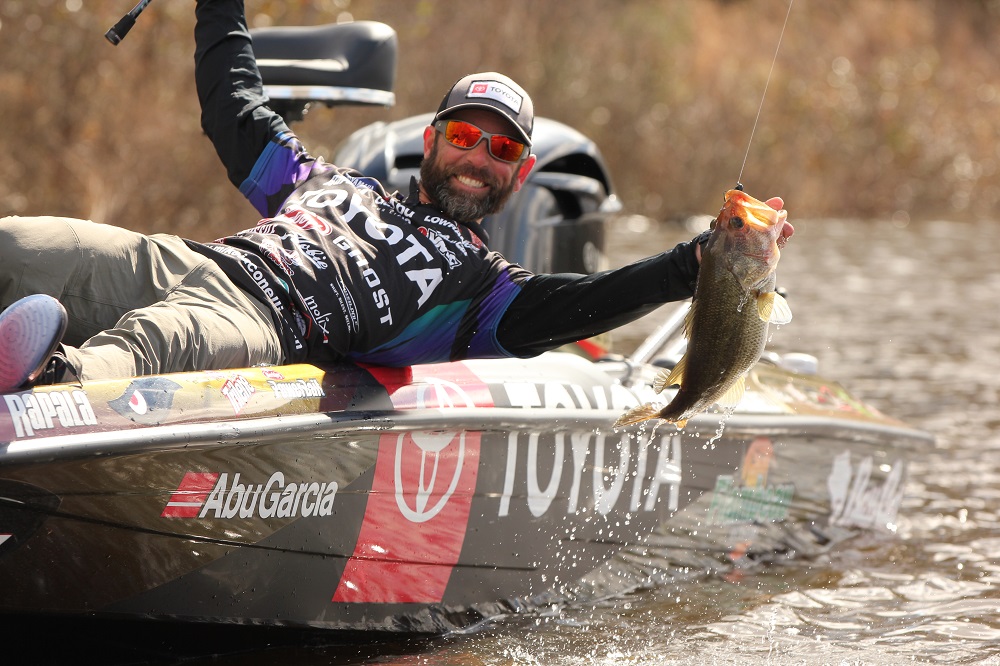
Like all sports, training for professional sports fishing is time-intensive and requires a lot of repetition. Iaconelli not only practices casting, picking and working lures, but also spends hours studying fish behavior, learning about locations, and reviewing strategies of his past performances and those of other anglers.
“Your opponent is a living thing, so I think a lot of people ask how you’re supposed to train for that,” he says. “As with a lot of sports, there are a couple aspects to training. It’s pretty physically demanding — these days I’d say 75% of professional anglers do some kind of physical training.”
Increasing Opportunity for Others
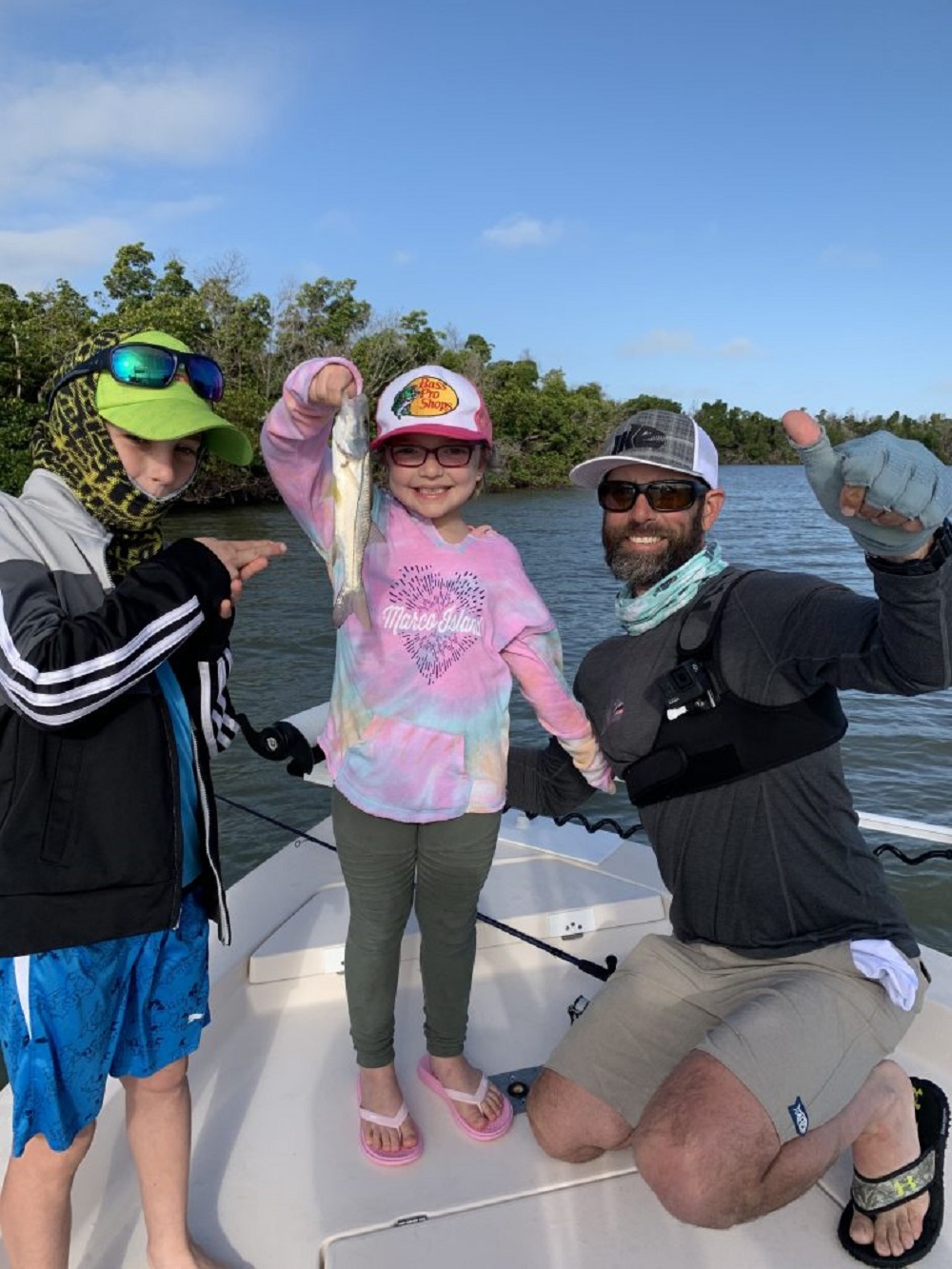
Despite the long, repetitive hours, Iaconelli says his motivation has always been the same: He loves to catch fish. Sharing that passion with others is the purpose behind the Ike Foundation.
“I love the sport and competing, so much that I want to get other people involved,” he says. “That’s what we’re doing with the Ike Foundation — [we’re] getting new people into fishing. I think that in order to get other people involved, to spread the message of how amazing the sport is, it has to be obvious how much you love it yourself.”
Most recently, Iaconelli and the Ike Foundation hosted a month-long virtual ‘Fish Against Ike Bass Fishing Tournament’ where people around the U.S. and Canada take a photo of themselves fishing and submit it to the contest. Over 600 people entered, including kids, adults and more serious anglers to compete against their friends, others in their region and Iaconelli himself. The tournament raised $10,000 to assist New Jersey charitable organizations, including the Food Bank of South Jersey, where Iaconelli resides, and Family Success Center of West Jersey, to provide meals to local children and families during the COVID-19 pandemic.
“I’ve got to tell you, in three of the four weeks I fished in this tournament, I really tried to win,” he says. “But I got beat. It was very, very humbling, but so awesome because people got outside with their families, physically self-isolating, and compete together in this tournament. It was so successful.” The winning bass catches from the Northern and Southern regions ranged from 22-25 inches long.
“We appreciate the support of the anglers across the country that participated in this fun fishing event and our sponsors who so generously donated as well,” says Iaconelli. “It’s an awesome thing to see the fishing community come together to help feed kids and families during this time of crisis.”
The Iaconellis, who have four children, understand the impact the virus and school closures can have on families.
During normal circumstances, the foundation holds events and fundraisers to raise money to send rods and reels to a group in need and hosts a fishing clinic for kids. But given regulations related to COVID-19, those activities are on hold.
In addition to running the Ike Foundation, the Iaconellis also have an instructional arm of the business called Bass University, which teaches people to become better anglers. And when he’s not competing, Iaconelli hosts a podcast called Ike Live. But the foundation is slowly becoming the family’s top priority.
“If we can get new people fishing, even a couple a year, 100 a year, whatever that number is, that is very, very important to me,” he says. “That’s the most important thing I’m doing now.”
